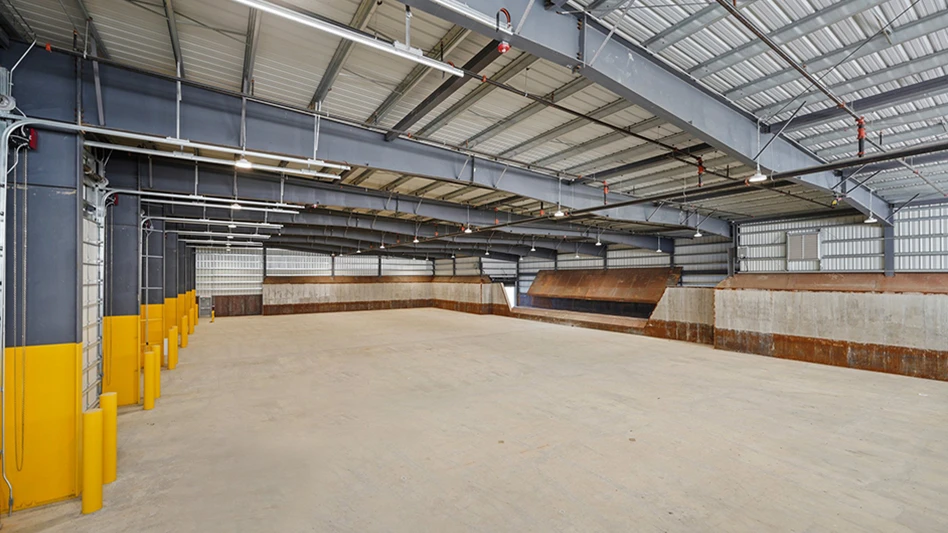Engineers create biofuel from carbon monoxide
Cornell University biological engineers have deciphered the cellular strategy to make the biofuel ethanol using an anaerobic microbe feeding on carbon monoxide (CO).
Ludmilla Aristilde collaborated with her colleague Lars Angenent, professor of biological and environmental engineering, on the project.
To make biofuel from inorganic, gaseous industrial waste, the researchers learned that the bacterium clostridium ijungdahlii responds thermodynamically, rather than genetically, in the process of turning favorable enzymatic reactions.
Synthetic gas, or syngas, fermentation is emerging as a key biotechnological solution, as industrial-sized operations are looking to produce ethanol from their gaseous waste streams, according to Angenent.
The scientists sought to grasp the physiological nature of the process. They found the microbe feasts on and then ferments CO.
“When I eat food, I get energy out of my food by metabolizing my food,” Aristilde explains. “Microbes are the same. In terms of biostructure, the bacterial cells are starving for nutrients, so they are responding metabolically, which leads to the desired outcome—ethanol production.”
To get the microbe to ferment the CO, scientists bubble it in the growth medium solution where the cells can feed on it.
Angenent says CO gas emitted as a byproduct of heavy industries can potentially be channeled to bioreactors that contain these bacterial cells.
The research was funded in part by the National Science Foundation.
Researchers testing waste plastics as fuel source for marine engines
Research is being conducted on Plaxx, a fuel made from residual mixed plastic waste, to determine if it can be used efficiently in diesel engines without increasing engine wear. Proponents of the potential fuel source, produced by the U.K.-based Recycling Technologies, say it could replace crude fuels for industrial and marine engines.
Innovate UK and the Engineering and Physical Sciences Research Council (ESPRC) have funded the research and will work in partnership with Recycling Technologies. The project is also supported by Swindon, U.K., Borough Council, Crapper and Sons Landfill Ltd., Wootton Bassett, U.K., and an international marine insurer.

Plaxx consists of a mixture of hydrocarbon monomers similar to crude oil. However, it is low in sulphur and other organic/inorganic contaminants. Currently, it is a soft wax at room temperature, but a low viscosity liquid at 158 degrees Fahrenheit.
Plaxx can be further refined and could be used as an input to plastics manufacturing, according to Recycling Technologies. Supporters of Plaxx say its long-term application will help create a usable resource from waste, which can otherwise not be efficiently recycled.
The research will develop the use of Plaxx by testing engine performance, exhaust emissions and engine wear on different engines over a broad range of test conditions.
The research also will develop software tools that will monitor the three aspects to enable engine users to achieve optimum performance from Plaxx fuel.
Tyton Bioenergy Systems creates partnership for tobacco biomass research

Tyton Bioenergy Systems, Danville, Virginia, created a partnership with agronomists from Virginia Tech and North Carolina State University to research turning tobacco plants into biomass.
The demand for tobacco in the U.S. has been on a steady decline. According to Tyton, in the 1970s, farmers grew more than 2 billion pounds of tobacco. By 2012, farmers were producing 800 million pounds. As well, the number of farms have declined from an estimated 180,000 in the 1980s to 10,000 in 2012.
Tyton has a contract with Callands, Virginia-based Briar View Farms, which grows tobacco across 80 acres of land. Two of those acres are dedicated to Tyton.
Researchers are using selective breeding techniques to increase the plant’s sugar and seed oil content to create a better feedstock for renewable fuel. According to Tyton, one acre of the plant can produce up to 80 wet tons of biomass.
Latest from Waste Today
- ReMA board to consider changes to residential dual-, single-stream MRF specifications
- Miller Environmental Group Inc. appoints CEO
- DPI acquires Concept Plastics Co.
- Laurel Mountain Capital announces investment in 5280 Waste Solutions
- Cielo investor requests annual meeting
- WIH Resource Group celebrates 20th anniversary
- NWRA: NIOSH cuts a step in the wrong direction
- Valicor Environmental services acquires Affordable Waste Management







